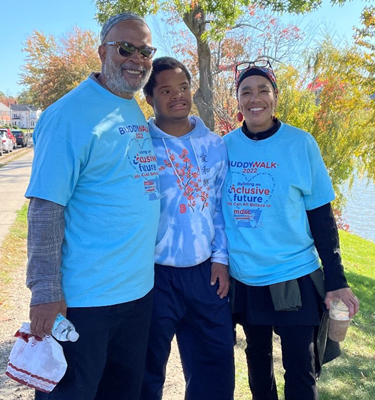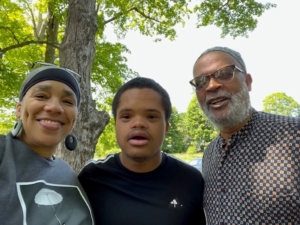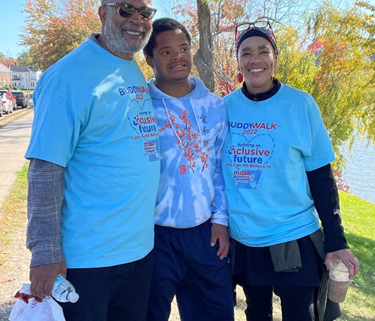One Family’s Experience Navigating Medicaid, From Applying to Obtaining Services
By Terri from Massachusetts
 Fifteen years ago, within days of being born, we learned that our son had Down syndrome. This sent us into a flurry of information gathering, advocacy, and more.
Fifteen years ago, within days of being born, we learned that our son had Down syndrome. This sent us into a flurry of information gathering, advocacy, and more.
One of the first pieces of advice other parents gave us was to sign up for Medicaid to help with expenses, including daylong doctor visits every six months and specialized equipment. A quick glance at the application was not encouraging.
Despite being well-educated, I found the paperwork daunting. It made me wonder—and worry about—what the process would be like for someone without strong literacy skills or for whom English is a second language. The cynic in me wondered if it was complicated by design, to frustrate people from applying.
For years, I was one of the frustrated people. My time felt completely consumed with trying to understand what it meant to raise a child with Down syndrome and to connect with families and communities that could support our efforts. Factoring in time spent trying to give some attention to our older child (forget finding couple time or alone time) and working at a more-than-full-time job meant I had no emotional bandwidth left to go through the [Medicaid] application process.
Finally, when my son was eight, another parent told me that many hospitals have staff who help navigate it. Thankfully, the hospital’s help meant we were successful on our first attempt. Still, applying so late meant we missed out on eight years of having co-pays covered, on financial support [for medically necessary items], on assistive devices to help my son walk and talk, and on getting him a [support worker].
For the most part, [having] Medicaid for the past seven years has been a huge help. We finally got a [support worker] and, a year later, a skills trainer.
Then the pandemic hit. For two years, we had neither service, which is understandable, because no one was eager to meet in someone’s home, and we weren’t eager to have anyone in our home either.

In July 2022, we were finally able to resume with [another support worker] and skills trainer. But where did the money go during those two years? It did not go to already underpaid [support workers] or skills trainers nor did Medicaid offer to make up for even a fraction of lost time, despite [my son’s skills having regressed]. In fact, Medicaid decreased our son’s skills trainer hours this past summer.
There are many ways in which we are grateful for Medicaid. When it works, it works well. Expenses are so high for so many of the things we have needed over the years, and even a little of the support that is included with Medicaid would have been welcome. But the process of successfully signing up seems to rely on a combination of word-of-mouth, advanced literacy, legal skills, patience with paperwork, and luck.
It should not be so difficult to support the needs of our most vulnerable citizens.








